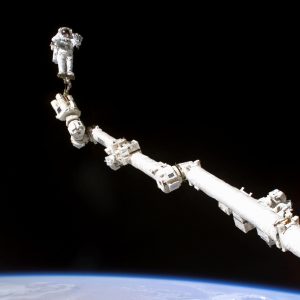

Aerospace Engineering involves the science, design, manufacture and operation of aircraft, spacecraft and robotic systems travelling within or beyond the earth's atmosphere.
Engineers in this field work on aircraft, space systems and spacecraft for space exploration, communications satellites, and rocketry. Aerospace engineers also work on wind-turbines for sustainable energy, urban air mobility, unmanned aerial vehicles, self-driving cars, and balloon-borne telescopes.
Canada has a long history and unique strengths in the aerospace sector. EngSci's Aerospace Engineering major has been a part of our program for over 60 years and has a greater emphasis on theory than many other aerospace-related undergraduate programs.
The Major provides a broad but comprehensive and multidisciplinary curriculum. Topics include aerodynamics, dynamics and control systems, structures and materials, combustion and propulsion, and aeroacoustics.
The program prepares students to contribute to advances in leading and emerging aerospace companies and research institutions within Canada and around the world. It is also excellent preparation for entry into top graduate programs leading to advanced research degrees.
Students receive instruction on aircraft design and flight (within the atmosphere) and spacecraft (beyond the atmosphere), with a strong focus on the fundamentals of the related science and engineering topics. Courses also touch on sustainable aviation and environment, and space exploration.
Students are taught by professors from the internationally recognized University of Toronto Institute for Aerospace Studies (UTIAS), who have outstanding research strengths in these areas. UTIAS is the university's hub for aerospace engineering and is Canada's space research powerhouse. Guided by its world-leading researchers, students gain design experience, access to unique, cutting-edge facilities and industry and government partnerships, including with the Canadian Space Agency.